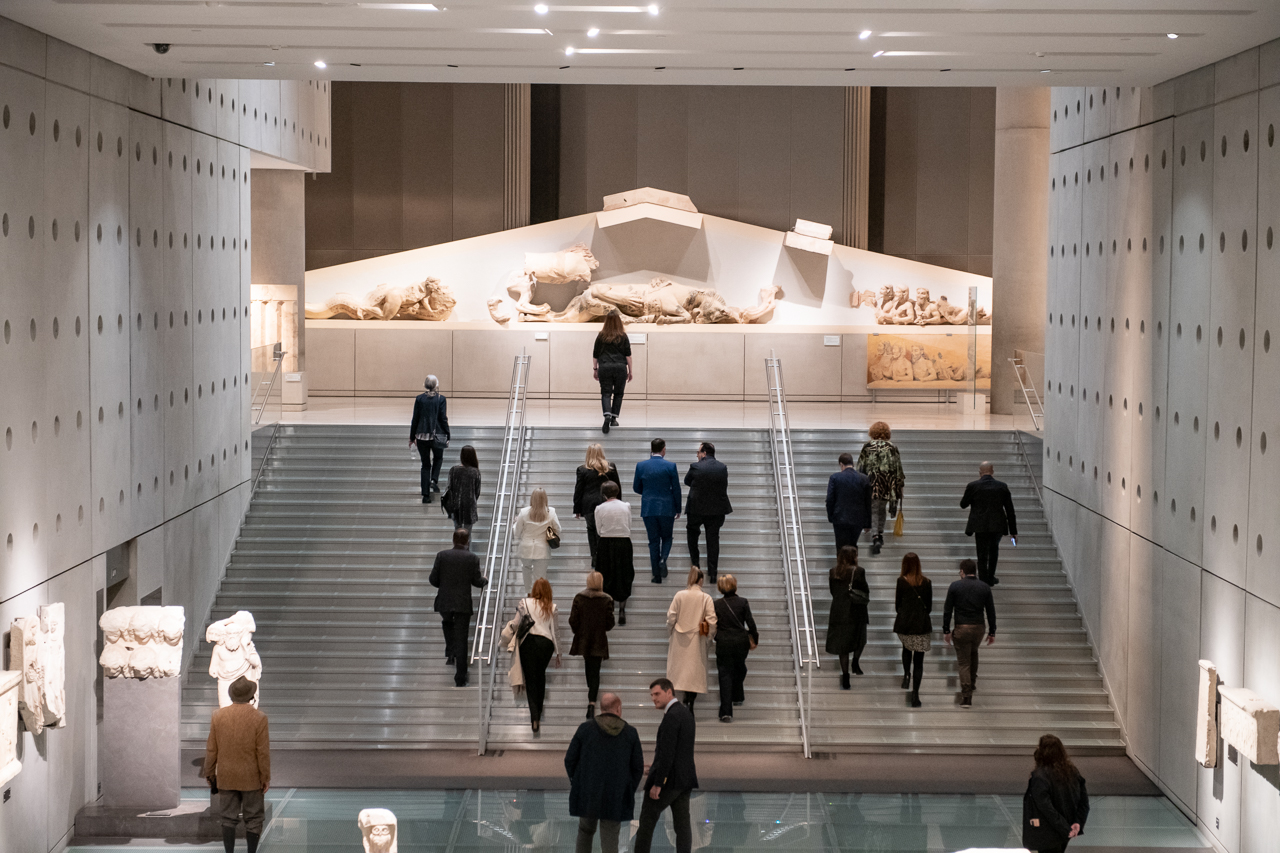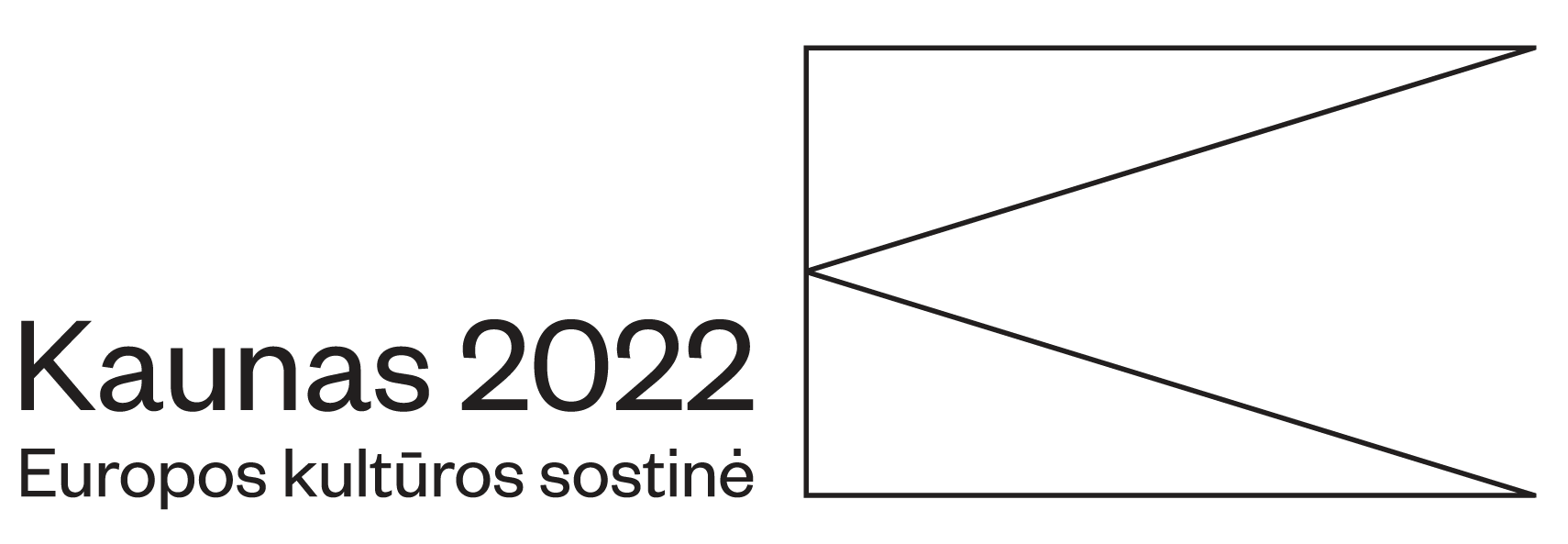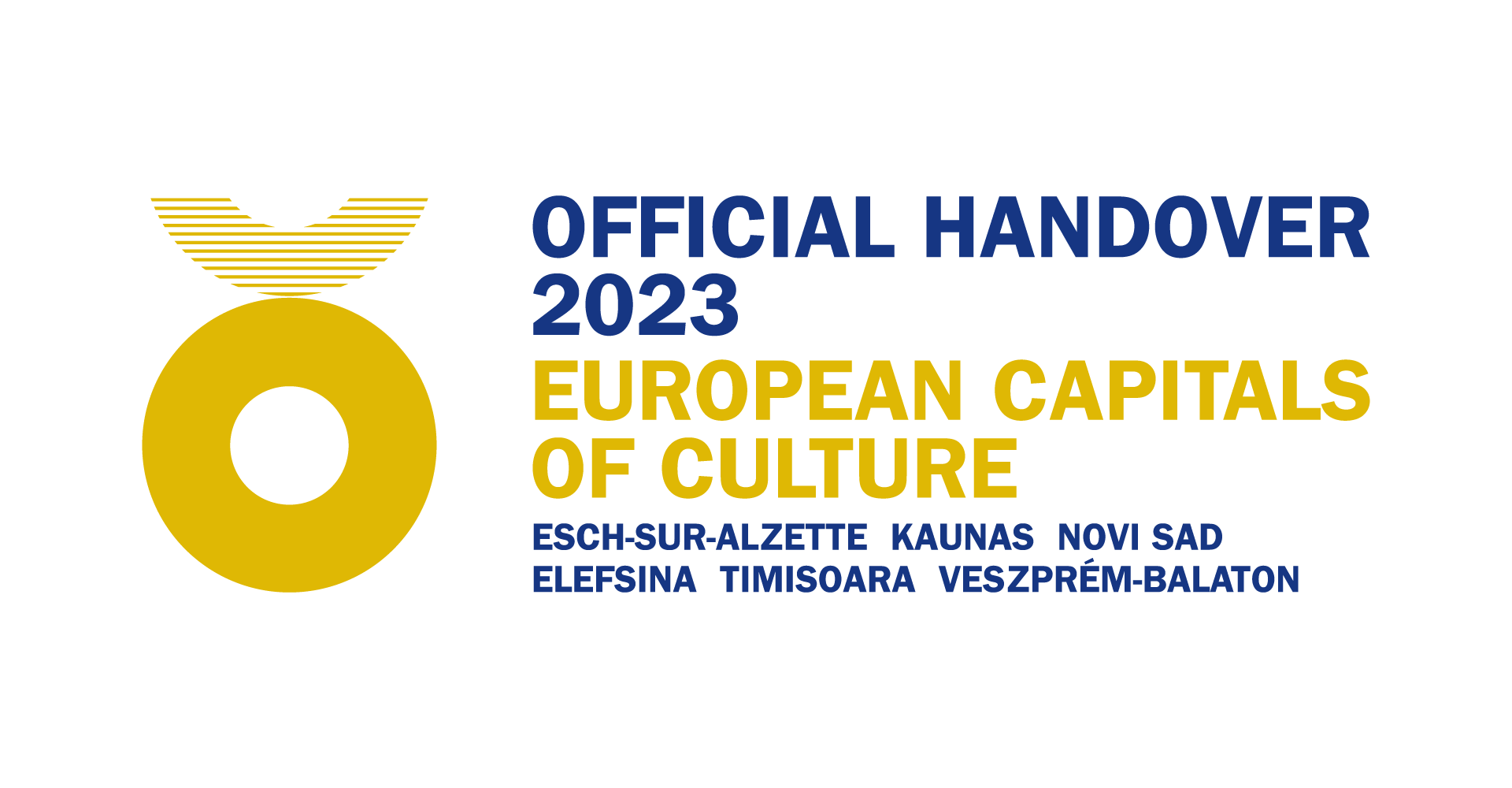 On January 9th, 2023, the European Capitals of Culture of 2022 officially handed over their titles to the cities and regions which will be representing the European Capitals of Culture in 2023. The ceremony took place in Athens, at the Acropolis Museum, and was marked by a multitude of speeches and artistic performances. The Official Handover 2023, which was symbolically embodied by an art sculpture, was also an opportunity for Official Representatives to remind of the meaning and purpose of the European Capitals of Culture as unique projects which aim at celebrating European cultures. Their mission is to connect people, cities and countries through culture, and therefore contribute to strengthening Europe in a sustainable way.
On January 9th, 2023, the European Capitals of Culture of 2022 officially handed over their titles to the cities and regions which will be representing the European Capitals of Culture in 2023. The ceremony took place in Athens, at the Acropolis Museum, and was marked by a multitude of speeches and artistic performances. The Official Handover 2023, which was symbolically embodied by an art sculpture, was also an opportunity for Official Representatives to remind of the meaning and purpose of the European Capitals of Culture as unique projects which aim at celebrating European cultures. Their mission is to connect people, cities and countries through culture, and therefore contribute to strengthening Europe in a sustainable way.
Athens was the first city to be designated as European Capital of Culture (ECoC) in 1985, on the initiative of former Greek Minister of Culture Melina Mercouri, along with her French counterpart Jack Lang. The objective was to gather European citizens closer together by highlighting the wealth and diversity of European cultures and raising awareness of their common history and values. It thus made perfect sense to host the handover ceremony in Athens. The six ECoCs involved for this first time also suggested it should take place in Athens every year from 2023 onwards, an idea which was positively welcomed by the European Commission.
“The European Capitals of Culture represent what Europe is known and appreciated for, even far beyond its diverse culture: Our principles of freedom, peace, justice and human rights. Culture is Europe and Europe is all of us – the six cities of today`s handover ceremony, and all European Capitals of Culture of the past and the future”, says Margaritis Schinas, Vice-President of the European Commission.
The 90-minutes ceremony was an opportunity for the representatives of the six ECoCs – directors as well as political and other representatives – to speak alongside the Vice-President of the European Commission, Mr. Margarítis Schinás. An art work by Luxembourgish glass sculptor Pascale Seil (“Made by Seil”) symbolized the title handover, symbolically representing European history at the same time. The highlight of the evening was the artistic performance “Tacet” by the Greek-English female dancer Rihannon Morgan from Luxembourg and Greek-French female accordeon player Servane Io Le Moller from Athens, who were part of the cultural program of Esch2022 (“DifferDanceDays”). Another highlight of the ceremony was the visit to the Acropolis Museum.
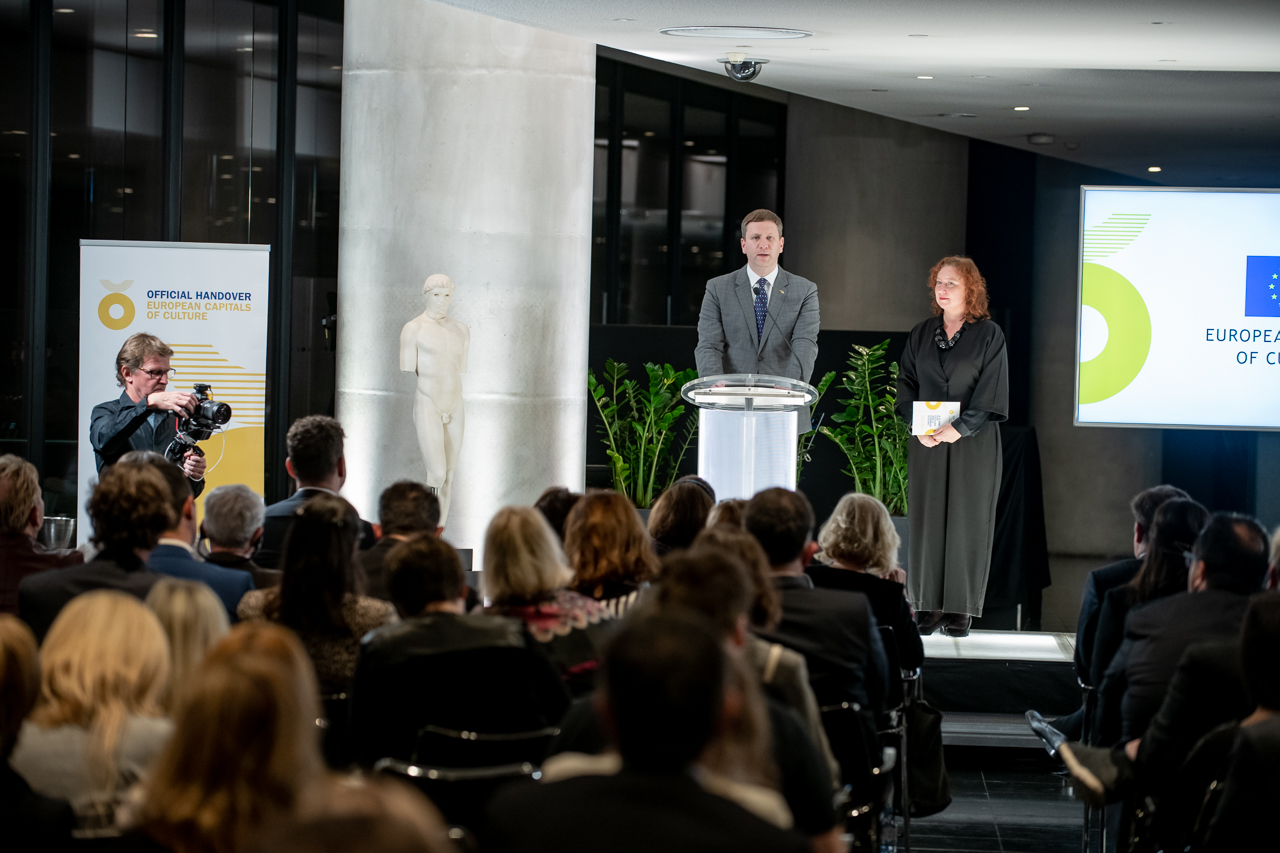
A symbol for Europe
The glass sculpture, symbolic representation of Europe, was inspired by a famous story from the Greek mythology: the abduction of King Agenor’s daughter, Phoenician maiden “Europa”, to which the continent owes its name. The myth of Europa, who infatuated Zeus, the king of all Olympian Gods, with her striking beauty and grace, has inspired many writers, historians, painters and European politicians throughout the centuries. Europa also inspired the Luxembourg artist Pascale Seil to create “The Bull”. Based on the Greek mythology, Zeus metamorphosed into a white bull to escape the anger of his wife Hera. He kidnapped Europa and took her to the island of Crete, where he revealed his true identity and impregnated her. Europa gave birth to Minos, who would become king of Crete.
The horns of “The Bull” represent the power; the circle, which carries the horns of the bull, represents volenity and infinity. The sculpture is constructed of 47 layers of colored glass, each representing one of the European countries. It evokes transparency and lightness, as well as movement through the twisting of the colored layers. The colors of Europe – blue and yellow (gold) – dominate. The history, the shapes and the colors of all the different layers symbolize Europe as a unified body composed of individual identities and peculiarities.
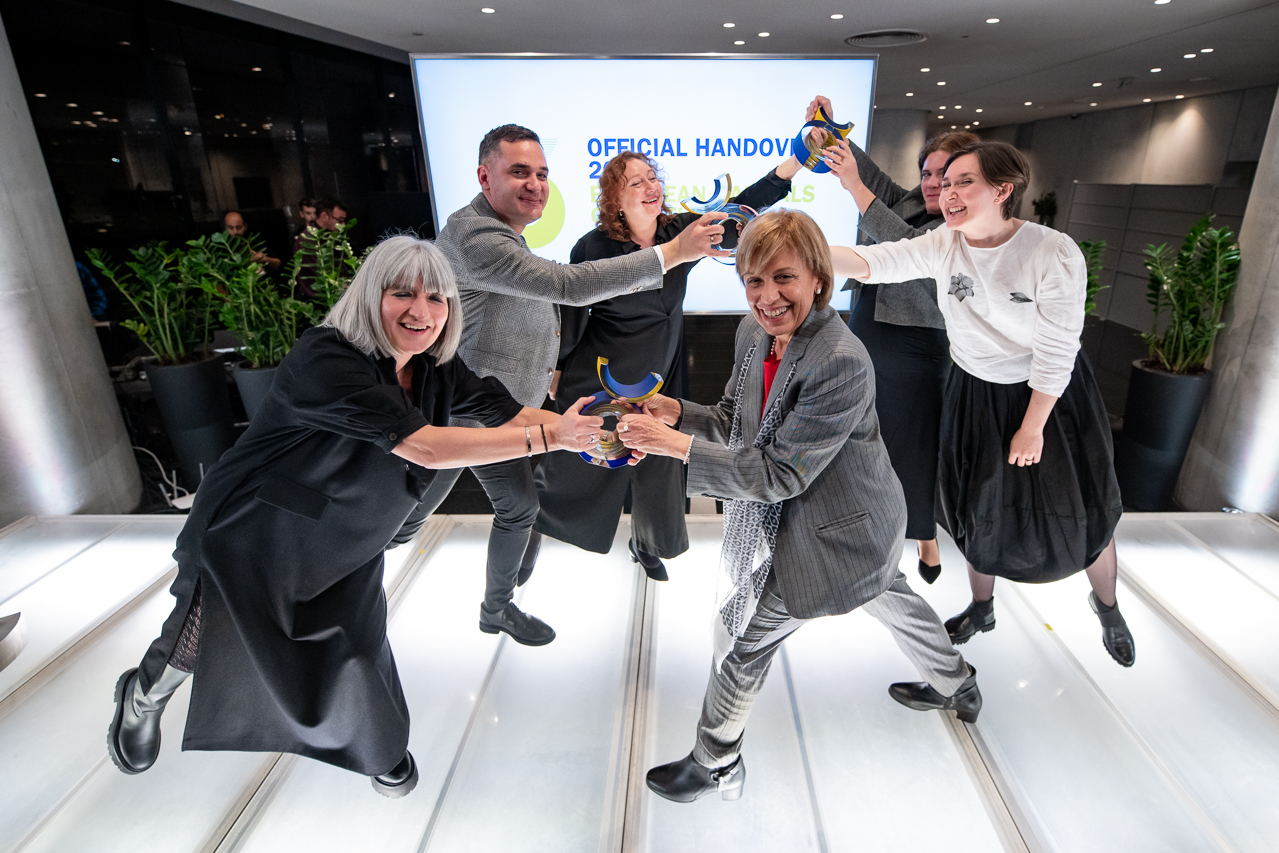
Participation in a common project – across borders
Similarly, the European Capital of Culture project perfectly embodies this combination of joint forces, yet carrying so many different facets. Hundreds of artists, institutions, volunteers and citizens help shape the special title years and lay the foundation for new things that will last through time. They collaborate with each other and bring people and cultures together. Citizens should actively take part in the project and its activities, and contribute to the development and cultural expression of their city or region. Each European Capital of Culture drives new energy into the city, and naturally boosts its cultural, social and economic development. All past, present and future titleholders should exchange ideas, benefit from eachother and support one another by driving projects together.
The cooperation and networking efforts between ECoCs is expressed through projects and initiatives which aim at achieving a long-term impact for the current title year and beyond. In 2022, ECoCs collaborated widely to create a multitude of projects. This newly established event is an additional component that reinforces and symbolizes this cross-boarder cooperation.
